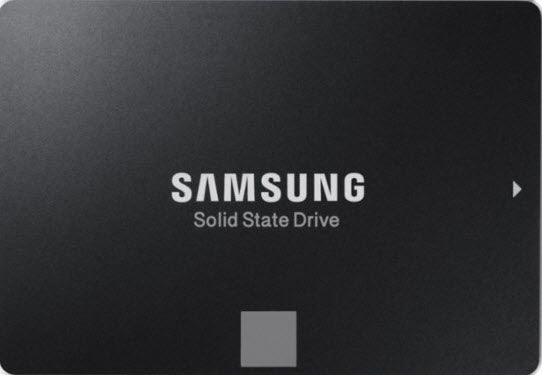I recently purchased a Samsung Evo 860 1TB hard drive for my aging Lenovo Laptop for $240. An equivalent 1TB HDD costs about $45. The cost ratio between SSD and HDD is 5.3 to 1. In terms of overall performance an SSD is roughly four times faster than an HDD. You will pay a premium in terms of price/performance when purchasing an SSD versus HDD. However, if you need the speed, we feel it's a small price to pay for the additional performance. Besides performance SSDs have some additional advantages over HDDs:
- Lower Power Draw. SSDs draw roughly half the power of an HDD. This will significantly extend the battery runtime on a laptop.
- Noise. No sound from SSDs.
- Vibration. SSDs are less sensitive to vibration.
- Longer Life (depending on usage and drive model). Overall SSDs have a Mean time between failure (MTBF) of 2 million hours versus HDDs which have MTBF of 1.5 million hours.
For Enterprise Class storage the cost ratio is even smaller. An HPE 1.92TB Mixed Use SSD is $2400 and an HPE 1.8TB 10k SAS HDD is $900. The cost ratio between SSD and HDD is 2.5 to 1. The performance of the Enterprise SSDs is roughly the same as Consumer Grade SSDs – 4 to 1. As you know Enterprise SSDs are much more expensive than consumer grade SSDs, primarily because Enterprise SSDs have a significantly longer write life. An SSD in a server is written to far more often than an SSD in a workstation. The price/performance argument is even stronger with Enterprise Storage because the cost ratio between them is only 2.5 to 1 versus 5.3 to 1 for Consumer Storage. This is consistent with what we observe in the field. In the last 24 months, all of our SAN and Hyperconverged installations were configured with 100% SSD storage.
Prior to this tipping point we may have put in some SSD, SAS HDD and SATA HDD into a Storage Area Network (SAN) and then load balanced Virtual Machines (VMs) based on their performance requirements. But because the price ratio of SSDs and HDDs has dropped so much we now specify 100% SSDs. This lowers the total cost of ownership because it simplifies administration - we don't have to worry about load balancing VMs. We do still use HDDs for NAS backup storage because we don't need the performance of SSDs.
We would argue that the tipping point has passed for SSDs in the Enterprise space and is imminent (if not already here) for the Consumer space. The cost ratio between SSDs and HDDs will continue to get smaller in the future. HDDs will still be used in backup, archive and applications (video, voice and images) that require an extremely dense storage. Consider using SSDs for your next storage purchase.

